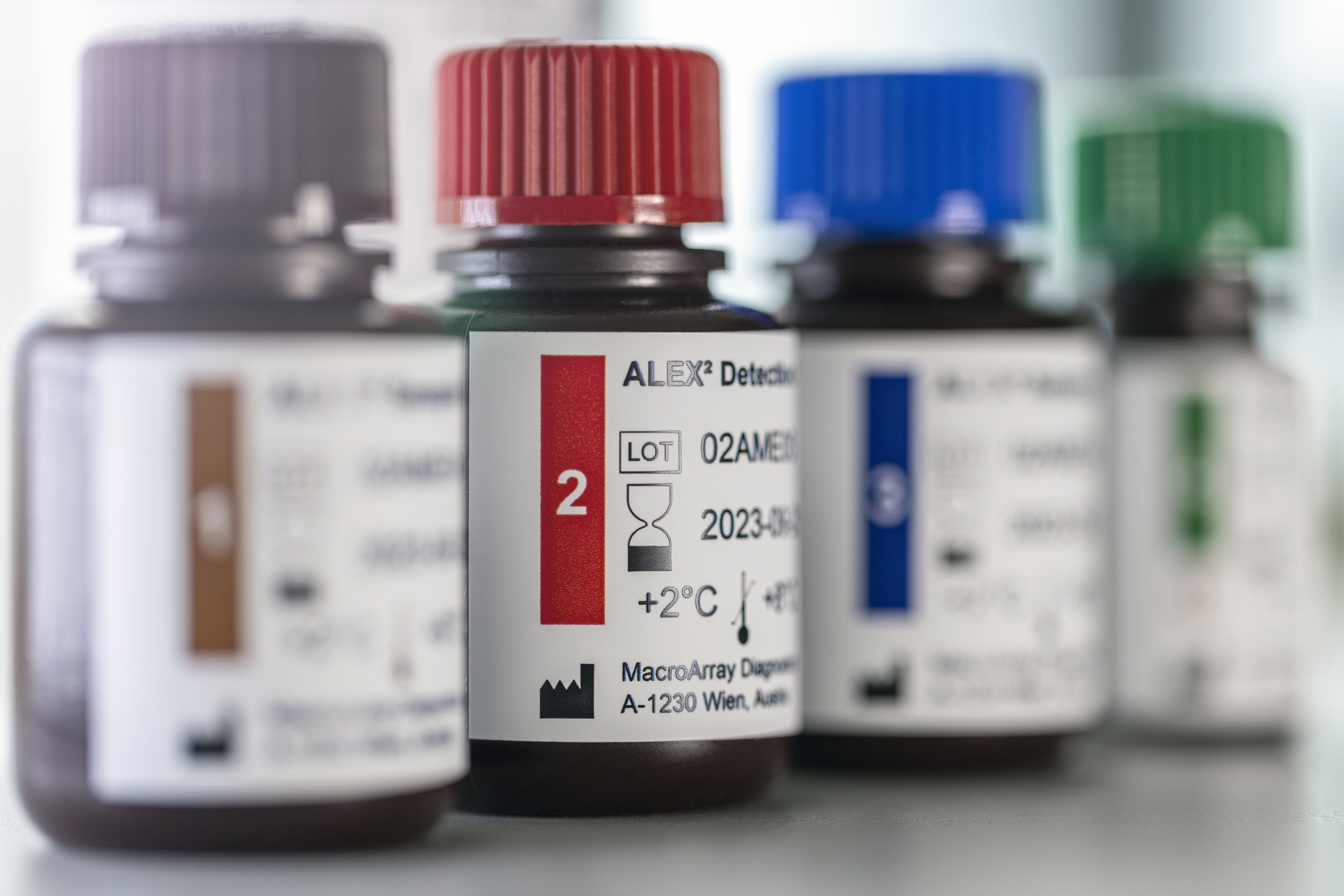Trust in us



)
)
We are part of an extensive academic collaboration network and are in constant conversation with the scientific communities from the Americas, Asia, Australia, and Europe. This mutually beneficial exchange ensures our ability to translate the newest findings in research directly into our products. Our science-oriented philosophy gives us the edge over our competitors in the allergy and food intolerance testing market. We continuously work on developing new applications for our patented nano-bead technology to ensure that we stay ahead of the curve in terms of innovation and quality of our products.
Read publicationsMADx offers allergy and food intolerance test kits for doctors that are able to screen for 300 allergens and 286 food antigens, respectively. Doctors can process tests themselves with our small processing systems, or work together with a lab for the analysis. In both cases, our software solutions are here to support doctors with managing and interpreting results.
See products Partner with lab
This study provides valuable insights for allergologists aiming to personalise diagnostics and optimise dietary recommendations for fish-allergic patients. Including freshwater salmonids to allergy testing could improve detection of fish allergy, while measuring IgE to Wels catfish may help differentiate between patients with limited (oligo) or broad (poly) fish sensitisation.
The multiplex IgE peanut panels exhibited strong agreement for the clinically important Ara h storage proteins but showed less consistency for the clinically relevant lipid transfer protein Ara h 9. Moreover, the panels highlighted the diverse characteristics of CCD sensitization. Understanding the source, isoallergen specifications, and CCD composition of peanut allergen components is critical for accurate interpretation of multiplex IgE results. These details should be clearly documented in both scientific literature and assay instructions.
